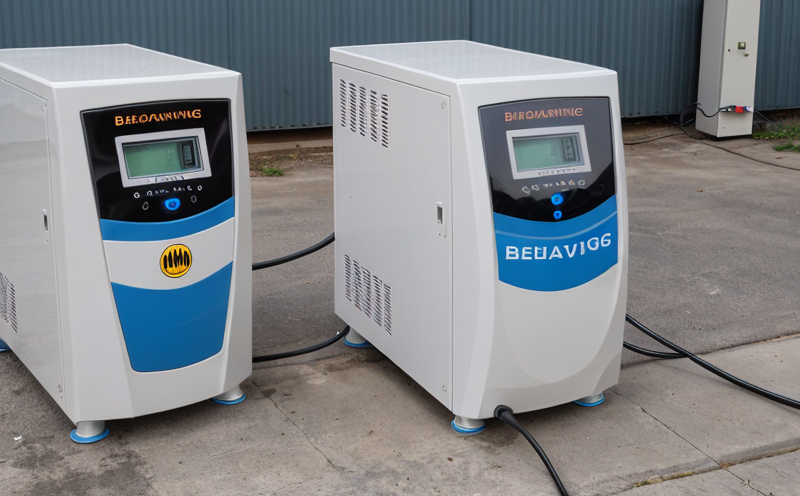JIS C8708 Charging and Discharging Testing of Automotive Lead-Acid Batteries
The JIS C8708 standard provides a comprehensive framework to evaluate the charging and discharging behavior of automotive lead-acid batteries. This service is essential for ensuring that batteries meet stringent performance requirements, which are critical in vehicle applications where reliability and safety are paramount.
Battery testing under JIS C8708 aims to assess how effectively a battery can be charged and discharged without compromising its structural integrity or operational characteristics over time. The test protocol involves subjecting the battery to various charging and discharging cycles while monitoring its performance parameters such as voltage, current, capacity retention, and internal resistance.
The testing process begins with thorough preparation of the specimen. This includes cleaning the terminals, ensuring they are free from any corrosive substances that could interfere with electrical conductivity. The battery is then connected to a dedicated charging/discharging station equipped with precision measurement instruments capable of recording minute changes in voltage and current throughout the process.
During the test, the battery undergoes several cycles of charging followed by discharging at controlled rates. Each cycle simulates real-world conditions that automotive lead-acid batteries might encounter during their lifecycle. By meticulously tracking these cycles, we can identify any weaknesses or inconsistencies within the battery's performance, providing valuable insights into its overall quality and lifespan.
The data collected from each cycle is rigorously analyzed using advanced computational models to predict long-term behavior accurately. This analysis helps manufacturers understand potential areas for improvement in their product design while also aiding regulatory bodies in enforcing consistent standards across industries globally.
One key aspect of JIS C8708 testing involves monitoring the battery's internal resistance, which plays a crucial role in determining its efficiency during operation. High internal resistance can lead to decreased performance and premature failure; hence it is vital to maintain low values throughout all stages of use. Our laboratory uses state-of-the-art equipment capable of measuring even slight variations in this parameter.
- Customer Impact: Ensuring compliance with JIS C8708 ensures that automotive manufacturers deliver products meeting strict quality standards, thereby enhancing customer satisfaction and trust.
This service not only helps in achieving regulatory compliance but also contributes significantly towards improving product reliability and longevity. By adhering to these stringent tests, companies can enhance their reputation among consumers who value safety and performance above all else.
Eurolab Advantages
At Eurolab, we pride ourselves on offering unparalleled expertise in battery testing services aligned with international standards like JIS C8708. Our state-of-the-art facilities equipped with cutting-edge technology ensure accurate and reliable results every time.
We employ highly qualified technicians who are well-versed not only in executing tests but also interpreting their outcomes effectively. This allows us to provide clients with detailed reports highlighting both strengths and areas requiring attention, enabling informed decision-making processes within organizations.
The use of sophisticated instrumentation ensures precise measurements, reducing the margin for error significantly compared to manual methods. Furthermore, our experienced team stays updated on latest developments in battery technology ensuring that we offer relevant services addressing current industry trends.
International Acceptance and Recognition
JIS C8708 has gained widespread acceptance within the automotive industry worldwide due to its rigorous approach towards ensuring product quality. Compliance with this standard is often seen as a benchmark for excellence, making it highly valued by buyers looking for dependable components.
Many leading manufacturers incorporate JIS C8708 testing into their quality assurance programs because it helps them maintain competitive edge in an increasingly demanding market space. Moreover, adherence to such standards fosters trust among consumers who rely on reliable performance from the products they purchase.





